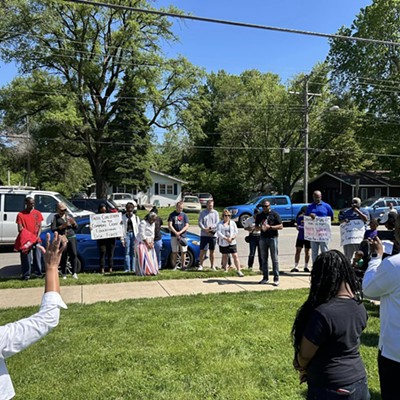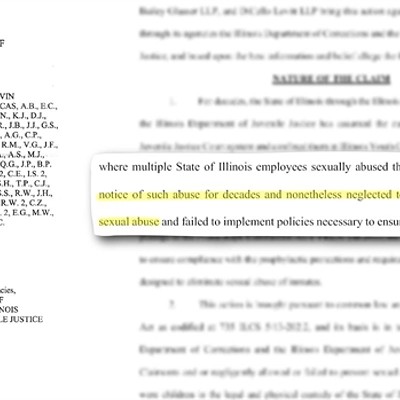The Seventh Circuit Court of Appeals last week tossed a cocaine dealer’s sentence, ruling that improper communications between U.S. District Court Judge Colin Bruce and former colleagues at the U.S. attorney’s office merited his removal from the case.
James Atwood pleaded guilty to selling 2 ½ ounces of cocaine. Bruce last year sentenced him to nearly 18 years, accepting arguments that Atwood, a reputed member of the Latin Kings street gang, is a career criminal, having twice been convicted of cocaine offenses in state court, both times in Kankakee County. In the federal case, Atwood pleaded guilty to drug dealing in Bradley, which also is in Kankakee County.
Bruce’s sentence was in the middle of the recommended range for a career offender and two years longer than the low end of the range from which judges can depart. During sentencing, the judge lectured Atwood and warned him to change his ways.
“You’ve got a lengthy record,” Bruce said. “I’m not considering the offenses that I said I wasn’t going to, but anybody taking just a snapshot can see you continually engage in various types of criminal behavior. The sentence I impose has to reflect the seriousness of the offense. It has to promote respect for the law, and I want it to do so because, obviously, prior sentences have not slowed you down. I’m speculating, but perhaps, in prison even, you increased your criminal skill set.”
Atwood appealed, arguing, among other things, that the judge shouldn’t have treated him as a career criminal and so the sentencing range should have topped out at 2 ½ years instead of two decades. His appeal was pending when Illinois Times reported that the judge, for years, had engaged in improper communications with former colleagues at the U.S. attorney’s office, where he was a prosecutor for 24 years before becoming a federal judge in 2013 (“Federal judge engaged in ex parte talk,” Aug.16, 2018). In one case, Bruce had exchanged emails with a paralegal in the federal prosecutor’s office, critiquing the prosecution’s performance midway through trial, suggesting ways to improve and laying odds on acquittal. Bruce was removed from hearing criminal cases after the newspaper’s story was published last year.
While some improper emails between Bruce and the U.S. attorney’s office have become public via court filings made by defense lawyers, most of more than 100 emails deemed to have violated court rules that bar judges from communicating with one party without telling the other side remains under court seal. According to a brief filed by Atwood’s lawyer, who was given access to unredacted emails, federal prosecutors who corresponded with Bruce knew that the judge was overly chummy with former colleagues. “Indeed, at times, (assistant U.S. attorneys) referred to the inappropriate nature of Judge Bruce’s emails in their responses to him,” Atwood’s lawyers wrote in requesting that their client be re-sentenced by a different judge.
Last spring, a council of judges appointed by the Seventh Appellate Court admonished Bruce after receiving a report from a committee of judges that determined the judge had broken rules aimed at ensuring impartiality, but no real harm was done. Bruce resumed hearing criminal cases on Sept. 1. “The council has identified no evidence suggesting that Judge Bruce’s ex parte contact or relationship with the U.S. attorney’s office…impacted his decision making in any case, and the council has therefore concluded that a more serious reprimand is not necessary,” the judicial council wrote in an order issued after receiving the committee’s report.
But the appellate court last week determined that Bruce’s failure to remove himself from Atwood’s cocaine case caused real harm, even though few, if any, of the improper communications between the prosecutor’s office and the judge involved his case. It boils down to public trust, the court determined, and upholding the sentence would have created genuine risk of unfairness toward the defendant.
“Allowing Atwood’s sentence to stand would undermine the public’s confidence in the fairness of this sentence and in the impartiality of the judiciary,” the appellate court wrote in ordering that Atwood be re-sentenced by a judge other than Bruce. “We conclude that Judge Bruce’s failure to recuse himself from Atwood’s sentencing was not harmless error.”
At least two motions for new trials filed by defendants who say that emails between Bruce and prosecutors show unacceptable bias are pending at the appellate court.
Contact Bruce Rushton at [email protected].




















